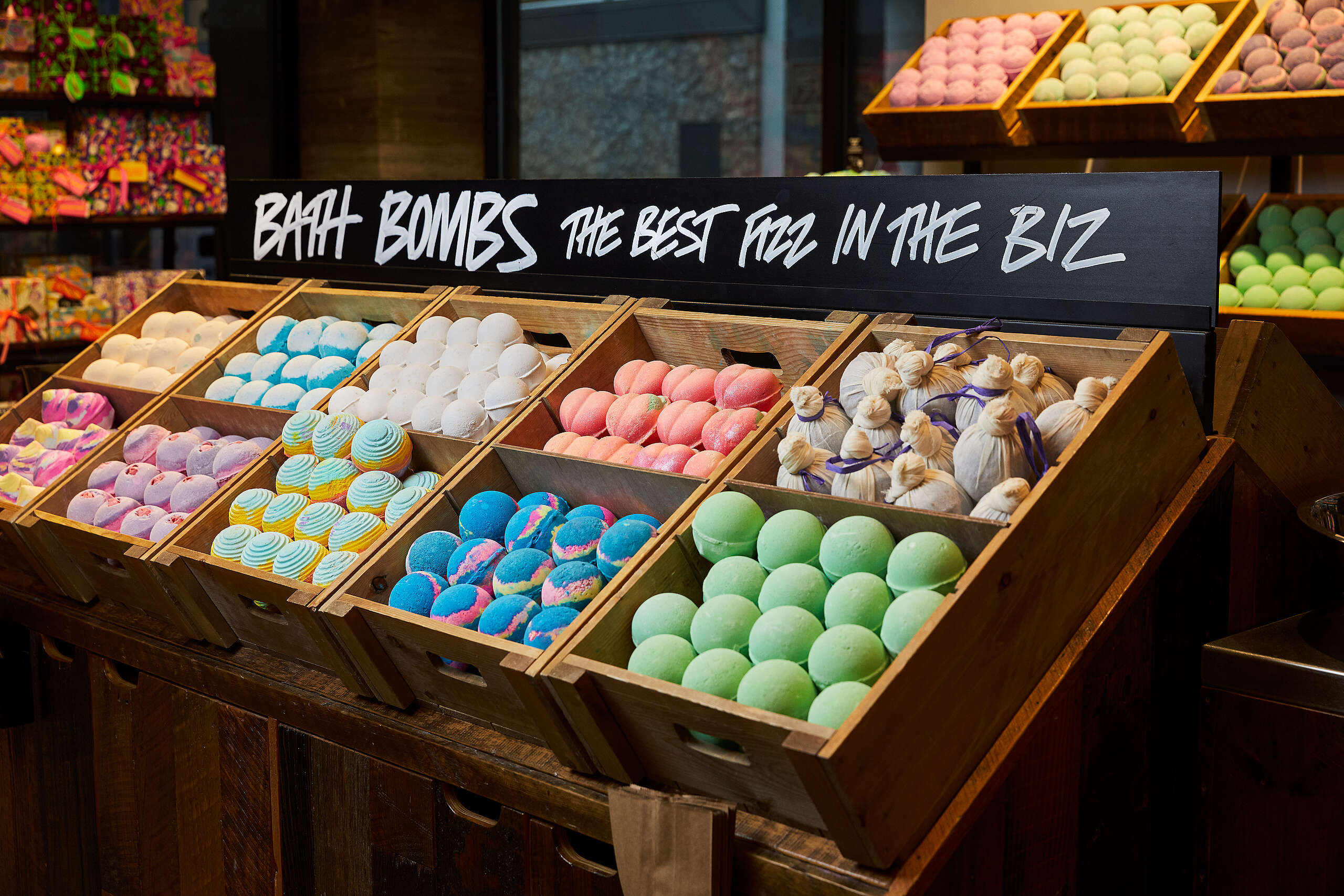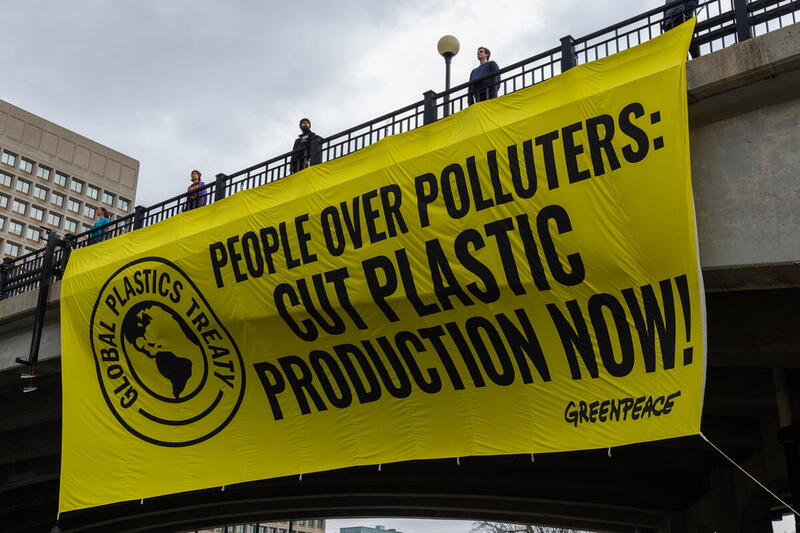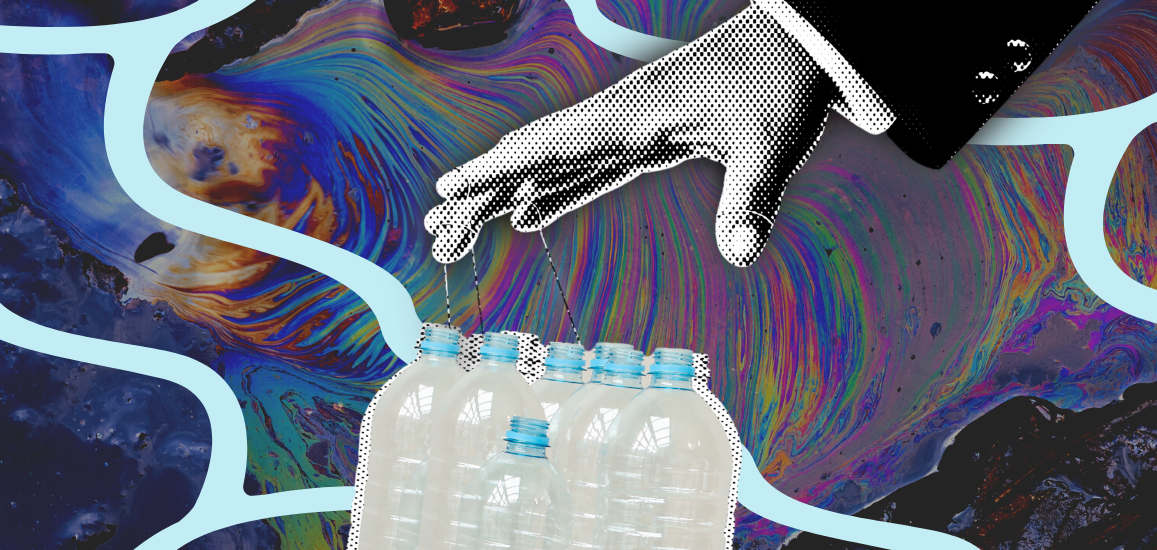A supermarket without disposable packaging? Possible and happening – Greenpeace report
Montréal — Greenpeace today released a report that presents “The Smart Supermarket” — a hypothetical store that has moved beyond single-use plastics and packaging. The report release coincides with visitations by Greenpeace volunteers to over a dozen supermarkets across the country as part of a Canada-wide week of action aimed at urging retailers to phase out single-use packaging and join the Reuse Revolution.
“Over 200,000 Canadians have signed Greenpeace’s petition urging major supermarkets to stop distributing single-use plastics and packaging,” said Sarah King, Greenpeace Canada’s Head of Plastics and Oceans. “Supermarkets are the places where people encounter the most single-use plastics, and people clearly want change. A reuse revolution is happening all around us, and we’re asking supermarkets to join it.”
As part of Global Refill Week from November 6th to November 13th, Greenpeace Canada volunteers and members of the public will have visited stores owned by Canada’s largest supermarket chains including Loblaw, Sobeys, Metro, Walmart Canada and Overwaitea Food Group. People attempted to get their reusable containers filled with desired grocery or take-out items, and left cards on shelves and products with messages including: “I wish this product came unpackaged,” “I wish this product came in bulk,” and “I wish this product came in reusable packaging” — a call to the companies to “Join the Reuse Revolution.”
Greenpeace’s in-store activities revealed that the acceptance of containers for refill varies across the big chains, and across each company’s stores. Some locations accepted containers for prepared food; however, most stores are not equipped with systems to allow customers to weigh their containers for bulk purchases. Greenpeace found that reusable and returnable packaging is largely non-existent, while refill opportunities are limited to mainly dry goods, where bulk options are offered.
“Reuse and refill models are not present in any significant way across Canada’s retail sector,” added King. “Customers trying to avoid disposables and plastic waste cannot succeed at the big chains, but it shouldn’t be on each individual to try to dodge plastic while grocery shopping. We urgently need smarter supermarkets, and retailers and consumer goods companies must work together to prioritize real solutions that end our dependence on throwaway plastic for good.”
As retailers grapple with how to transition away from throwaway packaging, the Smart Supermarket report outlines examples from around the world — throughout store aisles to the checkout counter — of supermarkets moving beyond single-use plastics and packaging. Some of the ways that supermarkets are making solutions work in various places around the world include: laser food labeling on unpackaged produce; bulk buying dispensers and self-service weighing scales; concentrate and refill format for personal care and cleaning products; reward options for reusable cups and containers with on-site return options; rent-a-bag schemes for customers who forget to bring their own; and deposit-return schemes for reusable packaging offered online and offline.
The report acknowledges the benefits and challenges of each potential solution and urges retailers and consumer goods companies to work together to accelerate a systematic shift away from single-use plastics and towards reuse systems.
In October and November, various zero waste and circular economy conferences and festivals are being held in Canada, convening representatives from companies, government and the public to discuss waste reduction strategies. Greenpeace has been urging companies to rethink product delivery and to avoid relying on false solutions that do not support circularity, do not reduce overall waste, and perpetuate the linear, disposable product delivery models.
END
The report is available here.
Photos here.
Greenpeace also released a report on false solutions to the plastic pollution crisis in September.
For more information, please contact:
Marie-Christine Fiset, Head of Media, Greenpeace Canada
[email protected]; +1 514 972-6316



